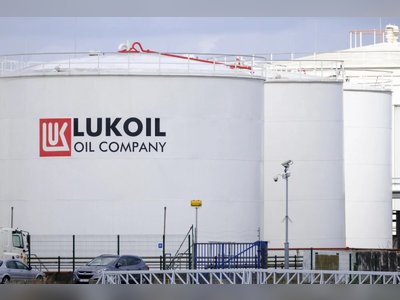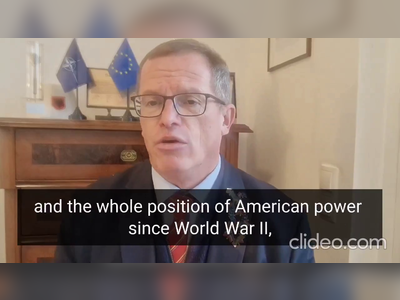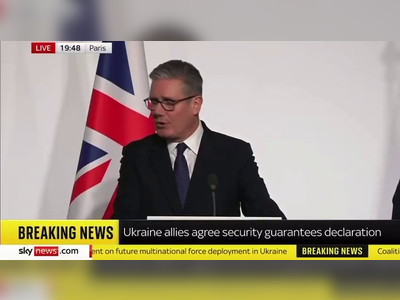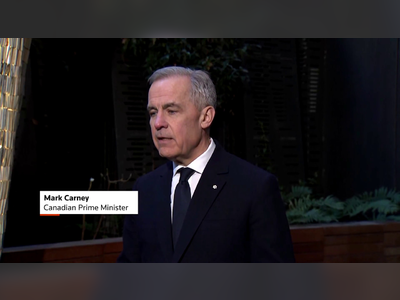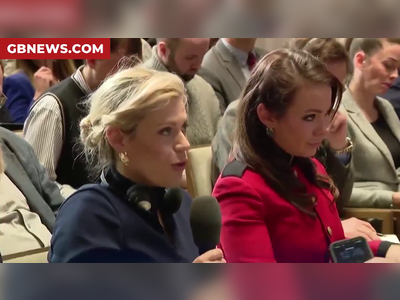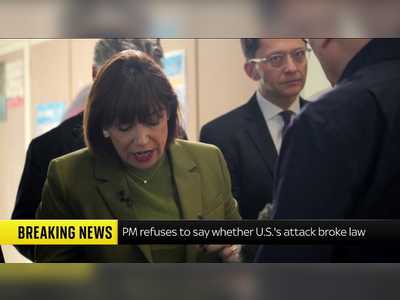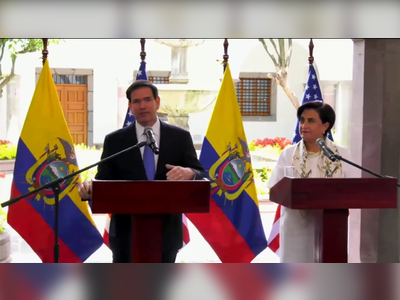Zuckerberg Yields to Trump: Facebook Fact-Checking Operations Abolished
Meta announces the dismantling of its fact-checking system as Zuckerberg pledges to align with incoming President Trump, sparking significant policy changes.
Meta has reduced its commitment to combating fake news, racism, and incitement by dismantling its fact-checking operations and loosening restrictions on content across Facebook and Instagram.
This decision, announced today (Tuesday) by founder and CEO Mark Zuckerberg in a video message, represents a major policy shift for the tech giant.
The move appears to be a gesture of goodwill toward incoming U.S. President Donald Trump, as part of a broader rightward shift in Silicon Valley following his November election victory.
'We plan to work with President Trump,' Zuckerberg declared in the video posted on Facebook.
In recent months, Zuckerberg has engaged in a significant charm offensive aimed at Trump, seeking to curry favor after the former president criticized Meta, threatened regulatory action, and appointed critics of Big Tech to key positions that could affect the company’s future.
This campaign included public praise for Trump before and after his election victory and a private dinner at Trump’s Mar-a-Lago estate, where Zuckerberg reportedly gifted him a prototype of Meta’s innovative VR glasses.
The most notable aspect of this shift involves the relaxation of content moderation policies on Meta’s platforms, taking inspiration from the rival platform X (formerly Twitter), owned by Trump ally Elon Musk.
In recent years, Meta faced widespread criticism for enabling the spread of fake news and propaganda, particularly during the 2016 U.S. elections, when Russian agents reportedly used Facebook as a propaganda tool.
In response, Meta implemented a series of measures aimed at cleaning up Facebook and Instagram by reducing disinformation, incitement, and polarization.
While not entirely successful, these measures had a significant impact.
Now, Zuckerberg intends to roll back these efforts, signaling a new era for Meta’s platforms.
'It’s time to return to our roots of free expression on Facebook and Instagram,' he said in the video.
'A lot has happened in recent years.
There’s been a debate about the potential harms of online content, with governments and traditional media pushing for increased censorship.
Many of these concerns are political, but there are also real issues like drugs, terrorism, and child exploitation.
We take these very seriously, and we’ve built complex systems for content moderation.
But the problem with complex systems is that they make mistakes.
Even if they censor only 1% of posts by mistake, that affects millions of people.
We’ve reached a point where it’s just too many mistakes and too much censorship.'
Zuckerberg acknowledged that Meta’s systems to combat fake news, racism, and incitement were flawed and prone to errors—claims the company previously denied.
However, rather than improving these systems to create a safer and more equitable platform, Zuckerberg declared them fundamentally flawed and instead opted for a new approach.
He also explicitly admitted that the political climate in the U.S. is a key factor in this shift: 'The recent election feels like a cultural turning point favoring free speech.
So we will return to our roots and focus on reducing errors, simplifying policies, and restoring free expression on our platforms.' This statement echoes longstanding criticisms from conservatives that Facebook and Instagram suppressed free and equal speech, a claim Meta frequently denied.
According to Zuckerberg, Meta plans to implement six major changes:
Elimination of Fact-Checkers: Meta will replace its professional fact-checking teams with community-based annotations similar to those on X, starting in the U.S. The fact-checking system, introduced after the 2016 election, was designed to identify false information and provide accurate context.
Despite its importance, Zuckerberg claimed it had become overly politically biased, particularly in the U.S.
Relaxation of Content Policies: Meta will simplify its content moderation policies and remove many restrictions on topics like immigration and gender.
Zuckerberg stated that inclusivity efforts had gone too far, stifling ideas and silencing dissenting voices.
Reduced Enforcement Thresholds: Meta will lower the threshold for enforcing content moderation.
Filters for severe violations will remain, but milder infractions will rely on user reports before action is taken, potentially allowing harmful content to persist longer.
Revival of Political Content: Zuckerberg plans to reintroduce political and current affairs content to users’ feeds, reversing a previous strategy to downplay such posts due to user stress.
Relocation of Safety Teams: Meta will move its trust and safety operations from California to Texas, citing concerns about ideological bias within its teams.
Collaboration with Trump Administration: Meta will work with President Trump to counter international censorship laws that Zuckerberg claims disproportionately target American companies.
He criticized increasing regulations in Europe and authoritarian practices in other regions as threats to innovation and free speech.
Zuckerberg concluded, 'After years of focusing on content removal, it’s time to reduce risks, simplify our systems, and return to our roots of empowering people to share their voices. I’m looking forward to this next chapter.'
This decision, announced today (Tuesday) by founder and CEO Mark Zuckerberg in a video message, represents a major policy shift for the tech giant.
The move appears to be a gesture of goodwill toward incoming U.S. President Donald Trump, as part of a broader rightward shift in Silicon Valley following his November election victory.
'We plan to work with President Trump,' Zuckerberg declared in the video posted on Facebook.
In recent months, Zuckerberg has engaged in a significant charm offensive aimed at Trump, seeking to curry favor after the former president criticized Meta, threatened regulatory action, and appointed critics of Big Tech to key positions that could affect the company’s future.
This campaign included public praise for Trump before and after his election victory and a private dinner at Trump’s Mar-a-Lago estate, where Zuckerberg reportedly gifted him a prototype of Meta’s innovative VR glasses.
The most notable aspect of this shift involves the relaxation of content moderation policies on Meta’s platforms, taking inspiration from the rival platform X (formerly Twitter), owned by Trump ally Elon Musk.
In recent years, Meta faced widespread criticism for enabling the spread of fake news and propaganda, particularly during the 2016 U.S. elections, when Russian agents reportedly used Facebook as a propaganda tool.
In response, Meta implemented a series of measures aimed at cleaning up Facebook and Instagram by reducing disinformation, incitement, and polarization.
While not entirely successful, these measures had a significant impact.
Now, Zuckerberg intends to roll back these efforts, signaling a new era for Meta’s platforms.
'It’s time to return to our roots of free expression on Facebook and Instagram,' he said in the video.
'A lot has happened in recent years.
There’s been a debate about the potential harms of online content, with governments and traditional media pushing for increased censorship.
Many of these concerns are political, but there are also real issues like drugs, terrorism, and child exploitation.
We take these very seriously, and we’ve built complex systems for content moderation.
But the problem with complex systems is that they make mistakes.
Even if they censor only 1% of posts by mistake, that affects millions of people.
We’ve reached a point where it’s just too many mistakes and too much censorship.'
Zuckerberg acknowledged that Meta’s systems to combat fake news, racism, and incitement were flawed and prone to errors—claims the company previously denied.
However, rather than improving these systems to create a safer and more equitable platform, Zuckerberg declared them fundamentally flawed and instead opted for a new approach.
He also explicitly admitted that the political climate in the U.S. is a key factor in this shift: 'The recent election feels like a cultural turning point favoring free speech.
So we will return to our roots and focus on reducing errors, simplifying policies, and restoring free expression on our platforms.' This statement echoes longstanding criticisms from conservatives that Facebook and Instagram suppressed free and equal speech, a claim Meta frequently denied.
According to Zuckerberg, Meta plans to implement six major changes:
Elimination of Fact-Checkers: Meta will replace its professional fact-checking teams with community-based annotations similar to those on X, starting in the U.S. The fact-checking system, introduced after the 2016 election, was designed to identify false information and provide accurate context.
Despite its importance, Zuckerberg claimed it had become overly politically biased, particularly in the U.S.
Relaxation of Content Policies: Meta will simplify its content moderation policies and remove many restrictions on topics like immigration and gender.
Zuckerberg stated that inclusivity efforts had gone too far, stifling ideas and silencing dissenting voices.
Reduced Enforcement Thresholds: Meta will lower the threshold for enforcing content moderation.
Filters for severe violations will remain, but milder infractions will rely on user reports before action is taken, potentially allowing harmful content to persist longer.
Revival of Political Content: Zuckerberg plans to reintroduce political and current affairs content to users’ feeds, reversing a previous strategy to downplay such posts due to user stress.
Relocation of Safety Teams: Meta will move its trust and safety operations from California to Texas, citing concerns about ideological bias within its teams.
Collaboration with Trump Administration: Meta will work with President Trump to counter international censorship laws that Zuckerberg claims disproportionately target American companies.
He criticized increasing regulations in Europe and authoritarian practices in other regions as threats to innovation and free speech.
Zuckerberg concluded, 'After years of focusing on content removal, it’s time to reduce risks, simplify our systems, and return to our roots of empowering people to share their voices. I’m looking forward to this next chapter.'
AI Disclaimer: An advanced artificial intelligence (AI) system generated the content of this page on its own. This innovative technology conducts extensive research from a variety of reliable sources, performs rigorous fact-checking and verification, cleans up and balances biased or manipulated content, and presents a minimal factual summary that is just enough yet essential for you to function as an informed and educated citizen. Please keep in mind, however, that this system is an evolving technology, and as a result, the article may contain accidental inaccuracies or errors. We urge you to help us improve our site by reporting any inaccuracies you find using the "Contact Us" link at the bottom of this page. Your helpful feedback helps us improve our system and deliver more precise content. When you find an article of interest here, please look for the full and extensive coverage of this topic in traditional news sources, as they are written by professional journalists that we try to support, not replace. We appreciate your understanding and assistance.


